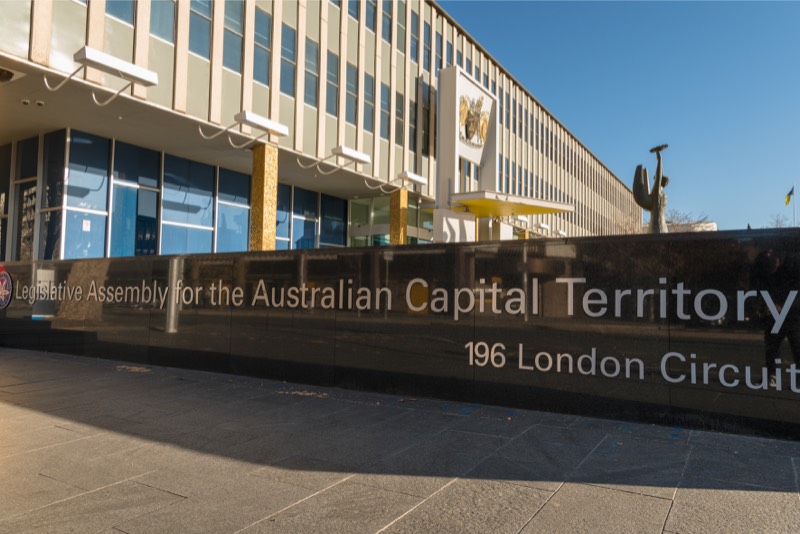
The ACT Budget deficit is bigger than the chief minister is letting on – $218 million bigger. JON STANHOPE & KHALID AHMED reveal that Andrew Barr, as Treasurer, has now produced 11 consecutive deficits with at least three more to come.
THE recently released 2022-23 ACT Budget forecast a “headline” operating deficit of $483 million in 2022-23, improving to a deficit of $229 million in 2025-26.
The “headline” operating balance measure, which was adopted by the ACT government in media associated with the tabling of the Budget, includes returns on its superannuation fund investments.
However, under the Generally Accepted Accounting Principles (GAAP) for Government Finance Statistics (GFS), which have been agreed to by all Australian states and territories and the Commonwealth, such returns are not, for good reason, included when calculating the surplus/deficit of the operating budget.
This begs the question, therefore, why Chief Minister and Treasurer Andrew Barr broke with convention and repeatedly referenced the “headline” operating deficit and not that revealed by recourse to GAAP in his public commentary on the Budget.
The most plausible answer is that the GAAP financial statements published in this latest ACT Budget (Page 295, Budget Paper 30), reveal a much grimmer reality, namely a deficit of $701 million in 2022-23.
That’s $218 million more than the headline deficit and a deficit of $500 million in 2025-26 or $271 million more than the headline number. Over the Budget and forward estimates period, the headline operating deficit is a cool $974 million less than that revealed through the application of the nationally accepted accounting standard.
Sections of the media, as they are entitled to do so, accepted the government’s Budget pronouncements at face value, and complimented the chief minister and treasurer for his management of the territory’s finances. However, Opposition Leader and shadow treasurer Elizabeth Lee did raise questions about the history of deficits and the rising debt, and whether the Budget forecasts were credible given the history of forecasts over the last several years.
Quizzed by the media and in Budget estimates about the state of the Budget, Barr explained that he had had to deal with the impacts of the Global Financial Crisis (GFC) when he first became Treasurer and notably also asserted that he had returned the Budget to balance before the pandemic. In response to a question in hearings of the Select Committee on Budget Estimates, he said the GFC was a contributing factor to the territory’s increasing debt.
One was left with the impression that: (a) the unbroken chain of deficits in the decade before covid were precipitated by the GFC, which the treasurer had successfully addressed by the time of the pandemic; (b) the increase in debt in the past related to infrastructure investments, particularly on three hospitals; (c) the increase in debt in coming years relates to the impacts of the pandemic; and (d) the Budget is on track to return to balance in coming years. We were also advised that all state and territory budgets had been impacted by the pandemic, and the state of the ACT Budget is not dissimilar to other jurisdictions.
Regrettably this rosy, nothing-to-see-here explanation of the territory’s “deficits and debt” is not supported by information from credible reporting sources, for example, the Australian Bureau of Statistics (ABS) or the Annual Financial Statements, which are signed off by the auditor-general.
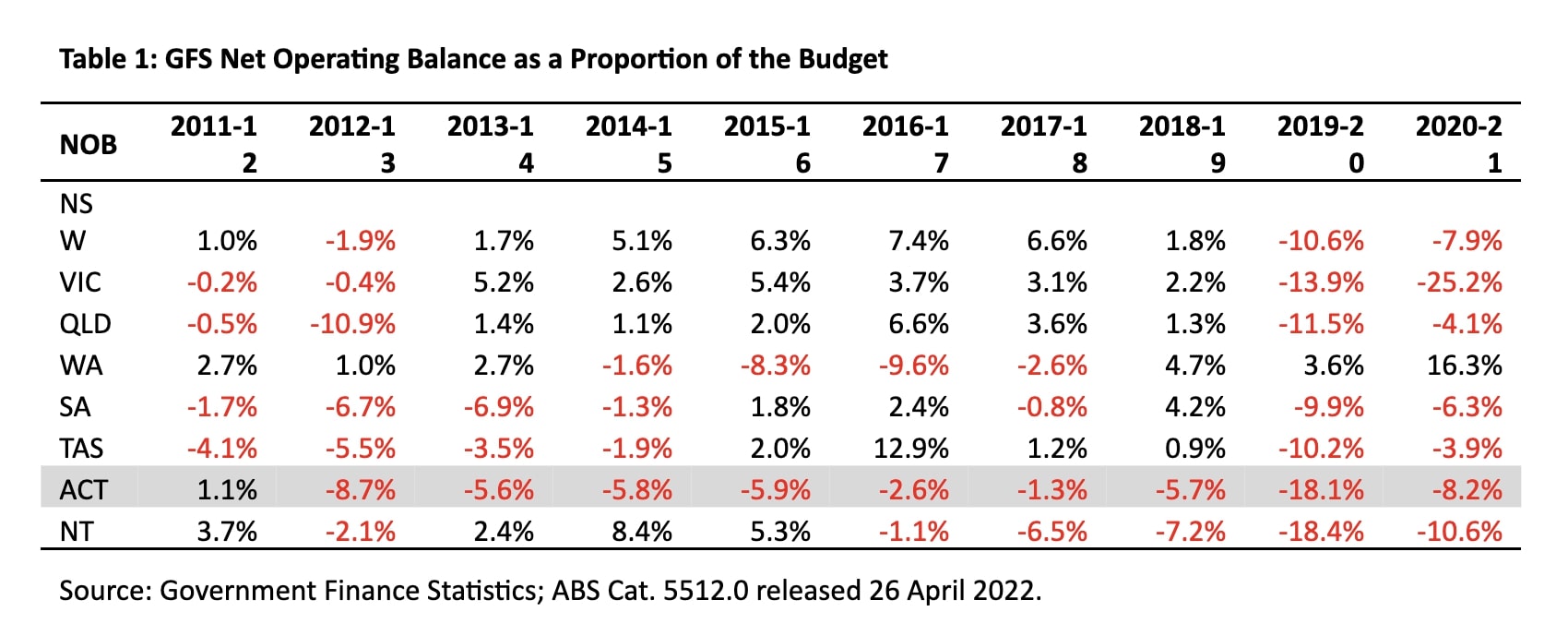
Table 1 compares the operating budget results for all states and territories from 2011-12 to 2020-21. The table is notable not only for the unmatched chain of deep deficits delivered by Andrew Barr as Treasurer, but that the last Budget surplus achieved by the ACT was in 2011-12, when Katy Gallagher was Treasurer.
Gallagher, in fact, also delivered a surplus in the two years before that, in three of the four years following the GFC. It is spurious to suggest the GFC had any role in the decade of deficits from 2012-13 onwards.
It’s telling that in the seven years 2012-13 to 2018-19, the ACT was the only jurisdiction in Australia not to have recorded a surplus.
Coincidentally, it is also the only jurisdiction in which, during that period, the treasury portfolio was held by the same minister. Following the most recent Budget, the ACT has now produced 11 consecutive deficits and has forecast a further three deficits in the out years.
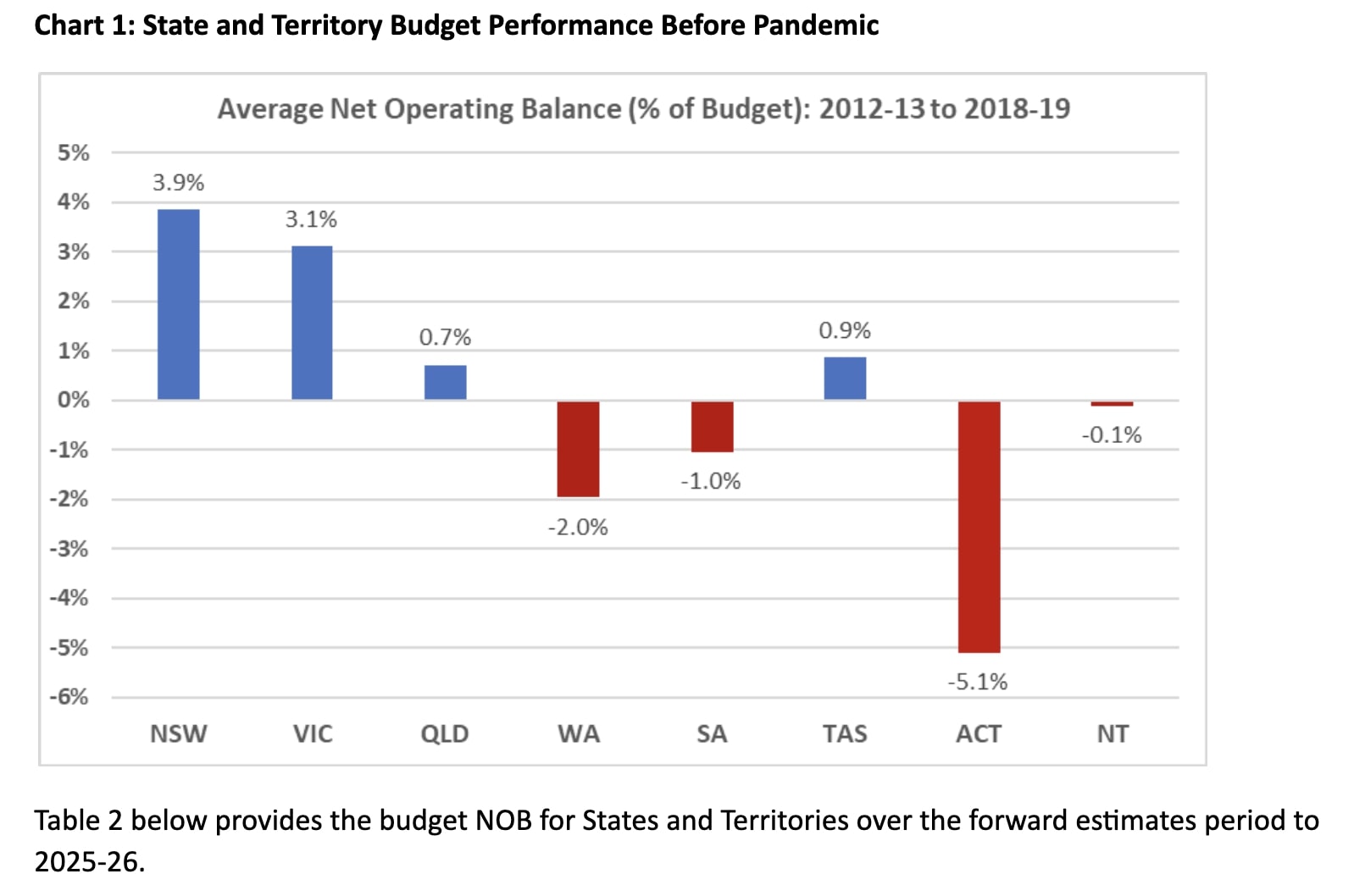
Chart 1 highlights the depth of the ACT’s structural deficit and its laggard status compared to other jurisdictions. Unlike the condition of the Budget in the lead up to the GFC, the territory’s operating budget was, in the years leading up to the pandemic, by far the worst placed in the nation to respond to an unanticipated fiscal shock.
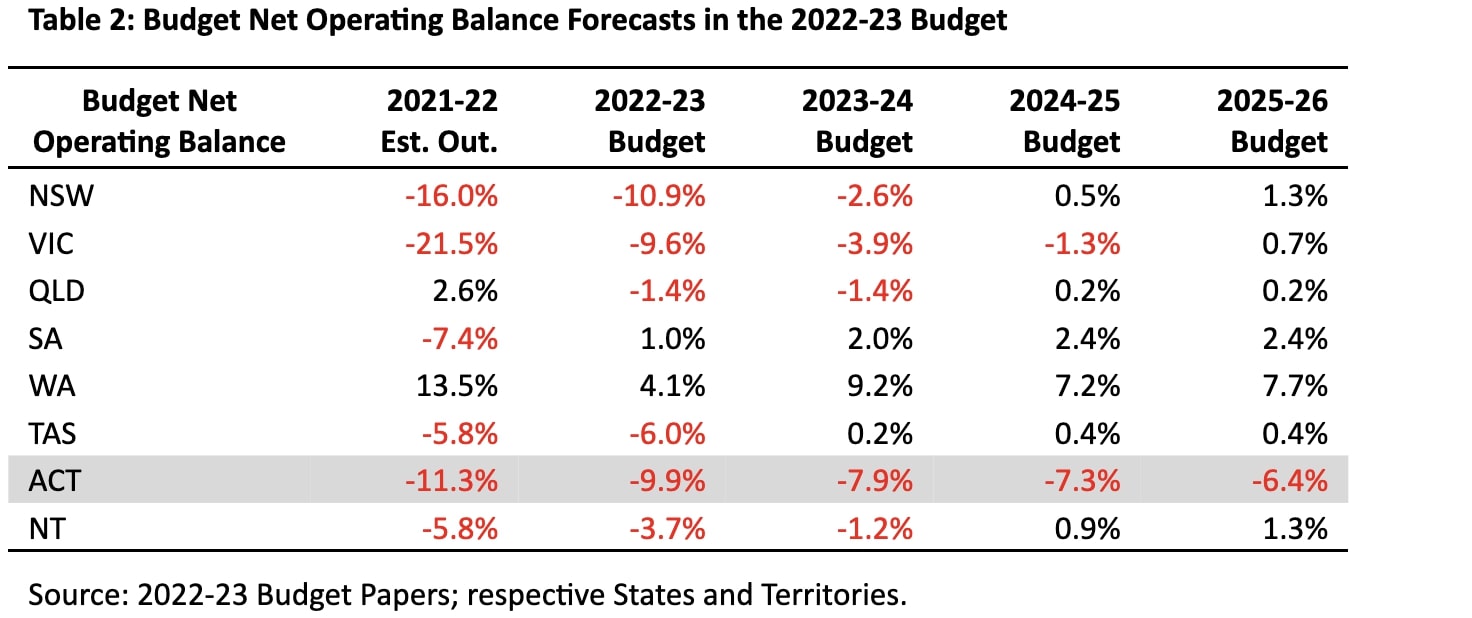
Table 2 provides the budget Net Operating Budgets for states and territories over the forward estimates period to 2025-26.
Revealingly, the ACT is the only jurisdiction in Australia that has not forecast a return to surplus in the out years. The state and territory sector, as a whole, is forecast to return to surplus in 2024-25. The ACT deficit, while improving from an estimated 9.9 per cent ($701 million) in 2022-23 to a deficit of 6.4 per cent ($500 million) in 2025-26 seems set to persist beyond the out years.
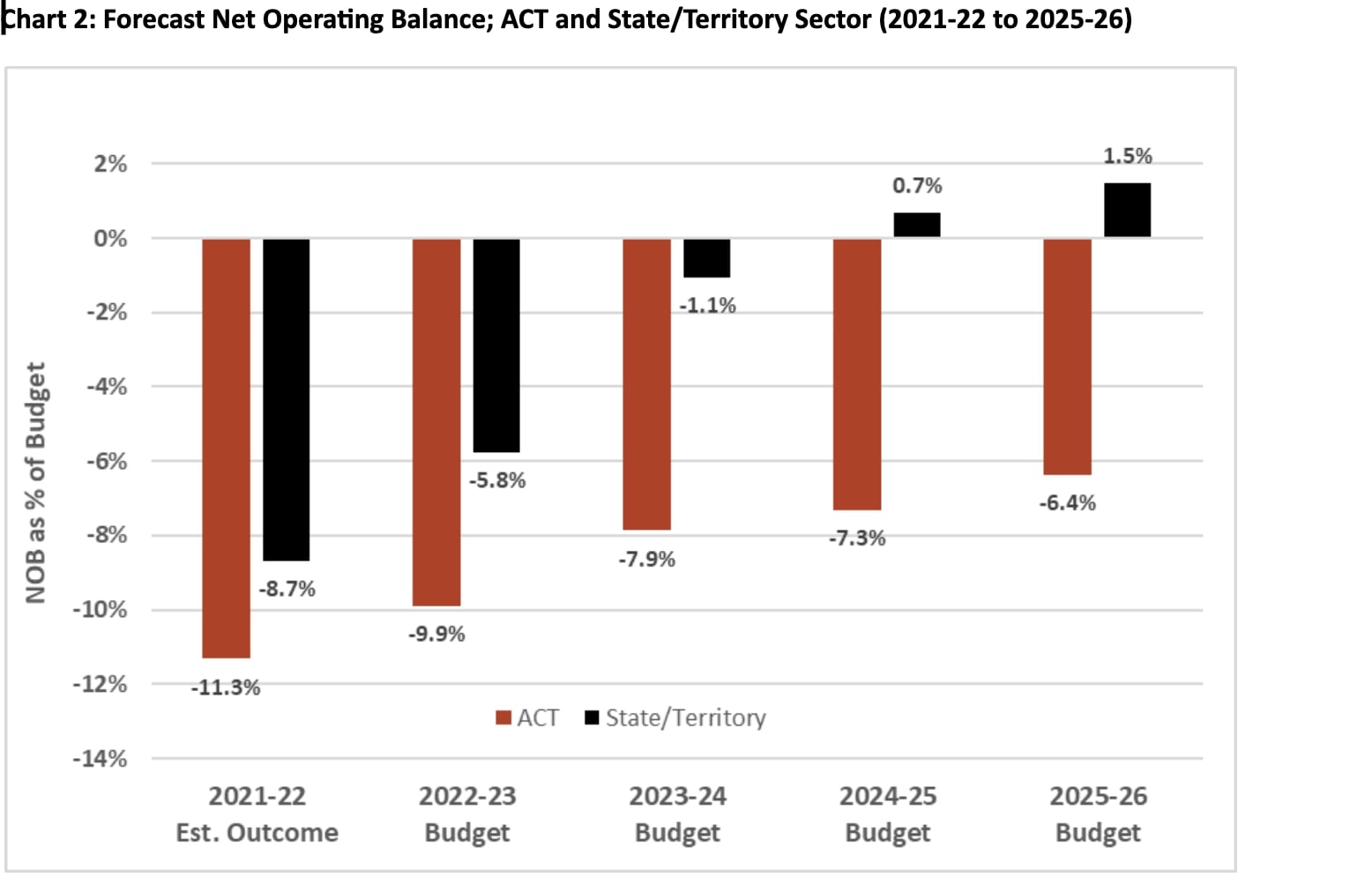
Deficits of the order forecast for the out years are not dissimilar to those accrued by the ACT in the seven years before the pandemic. What this suggests is that the major structural deficit embedded in the ACT Budget for the whole of the last decade is still not being addressed.
Of serious further concern is the absence of any evidence to suggest that the ACT government has a plan to return to a balanced budget beyond the forward estimates period.
In the second and final article in this series, former chief minister Jon Stanhope and former senior Treasury officer Dr Khalid Ahmed examine the credibility of the ACT government’s Budget forecasts along with reflections on the implications of the ACT’s rising debt.
Who can be trusted?
In a world of spin and confusion, there’s never been a more important time to support independent journalism in Canberra.
If you trust our work online and want to enforce the power of independent voices, I invite you to make a small contribution.
Every dollar of support is invested back into our journalism to help keep citynews.com.au strong and free.
Thank you,
Ian Meikle, editor








Leave a Reply